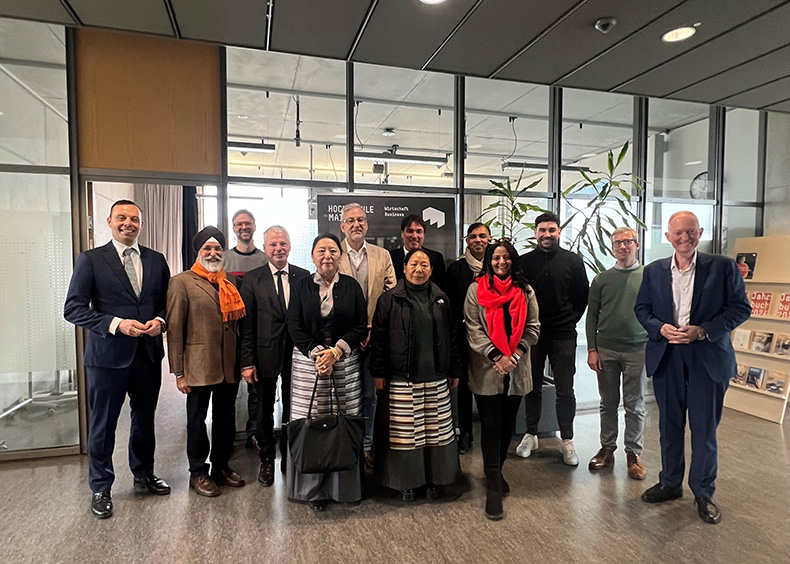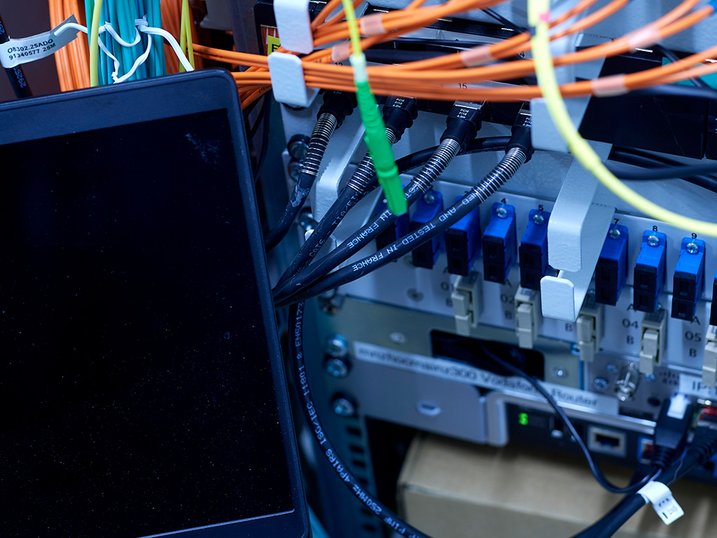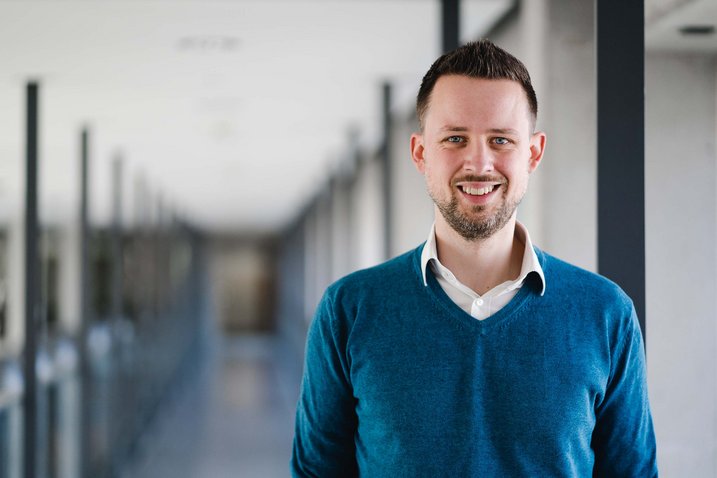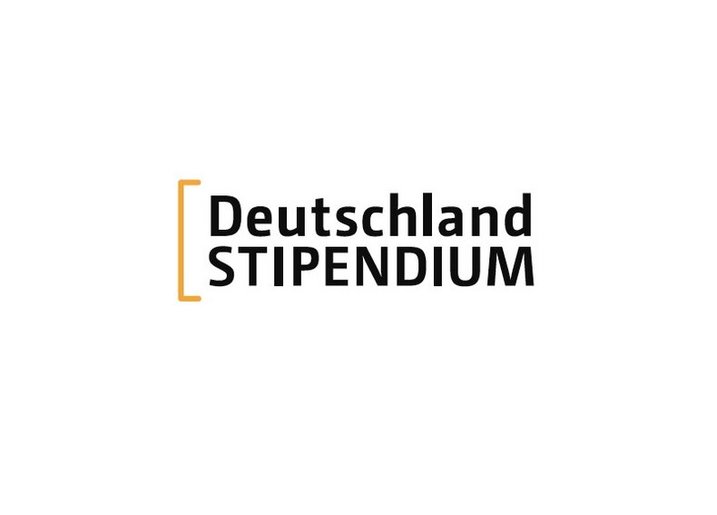A delegation of South Asian politicians visited Mainz University of Applied Sciences to find out more about the dual education system at the School of Business. The participants of the educational trip to the Frankfurt-Rhine-Main region, organized by the Friedrich Naumann Foundation for Freedom (FNF), included Ghanshyam Tiwari, spokesperson of India’s second largest opposition party, and Dolma Gyari, Security Minister of the Tibetan government-in-exile. The aim of the trip was to promote the bilateral dialog and gain a deeper understanding of economic, political, and social issues. The program agenda in Mainz was organized and accompanied by Viktor Wilpert Piel, representative of the Rheinhessen-Mainz Chamber of Industry and Commerce (IHK).
The focus of the visit to Mainz University of Applied Sciences was on the dialog with Dean Prof. Dr. Hans-Christoph Reiss about the dual education system, specifically dual studies at the university, in Rhineland-Palatinate, and at the School of Business at Mainz University of Applied Sciences in particular. The School played a pioneering role in 1977 when the first on-the-job degree program in Germany was introduced there. Over the past 48 years, the Mainz model has been continuously developed and adapted to the requirements of the economy. Today, the university offers degree programs that are integrated in vocational training, programs with practical experience and on-the-job programs.
Degree Program Manager Andreas Wunder explained the Mainz model, where dual students only attend lectures one afternoon a week and on Saturdays, while working in their jobs on the other days. This close integration of university and industry has proven its value right from the start. The Indian guests showed great interest in the practical nature of the dual studies program, which combines academic knowledge with vocational training and practical phases. Dean Reiss emphasized: “The dual system is a successful model that is attracting increasing attention. We are pleased to be able to share our experience.”
Dr. Carsten Klein, Regional Office Director of FNF South Asia, emphasized the importance of Indo-German exchange: “Through intensive dialogue, we sensitize decision-makers to the growing bilateral relations. The sharing of information on education systems and economic development helps to develop common perspectives.”
About the Friedrich Naumann Foundation for Freedom:
The Friedrich Naumann Foundation for Freedom is committed to political education and the advancement of liberalism worldwide. With its events and publications, it encourages people to take an active role in politics.




